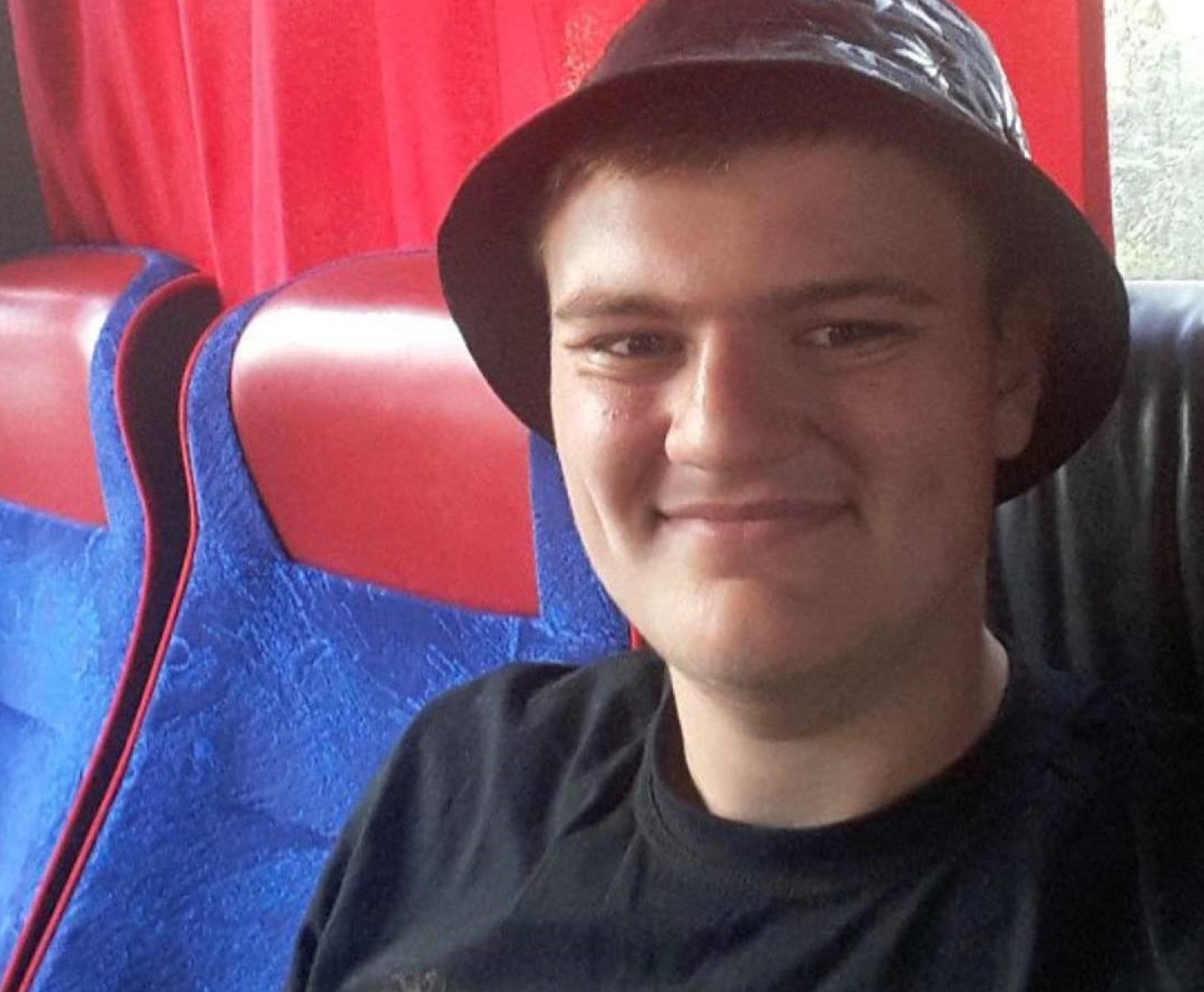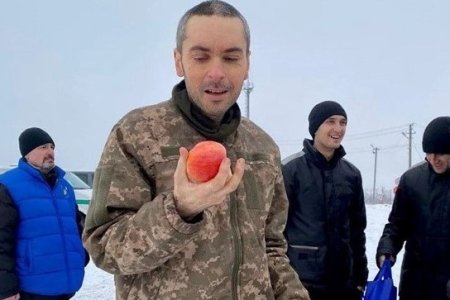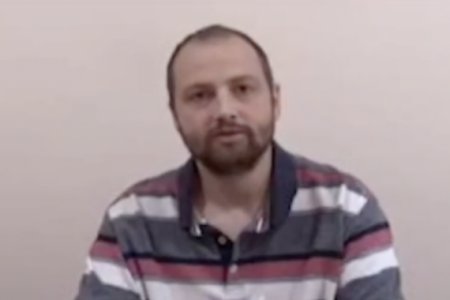
Mykyta Shkriabin, a third-year law student, has not been seen since he was seized by Russian soldiers in Kharkiv oblast on 29 March 2022. His relatives and lawyer know only that he must be alive as Russia finally admitted, many months after his abduction, that he had been “detained”.
Although Mykyta has been in Russian captivity for 15 months, the Russians are refusing to tell his lawyer or family where he is held, or why he has not been released. His mother has no idea even what condition her son is in.
Tetiana Shkriabin and Yury Barabash, the Vice-Rector of the Kharkiv Law University, where Mykyta is a student, recently spoke about the situation on Hromadske Radio. Tetiana explains that their village in Kharkiv oblast was under Russian occupation in March 2022. It was impossible to get out because of the constant shelling, so they had mainly sheltered in their basement, not even going out into the courtyard.
On 29 March 2022, however, her son left their home, planning to go literally one kilometre away. She has not seen him since, however witnesses told her that he had been stopped and taken away by the Russians, with some saying that they saw him in the Russians’ car, beaten and bleeding. Mykyta was abducted a mere day or two before the invaders were forced to retreat.
She contacted the university who became involved in attempts to find and rescue their young student. They succeeded in finding a lawyer in Russia, not afraid to take on such a case. For any person versed in the law, the situation is incredible, as Yury Barabash explains. When Russia finally admitted to holding Mykyta prisoner, it claimed, incomprehensibly, that this was for “actions countering the special military operation”, the latter being Russia’s euphemism for its war of aggression against Ukraine. It is especially absurd, Barabash says, “when Russian officials begin weaving and claiming that Mykyta was detained “for violation of laws on Ukrainian territory” “Which laws?”, you ask, and they answer, “Russian laws”.
Russia has been seizing and imprisoning civilians since the beginning of its full-scale invasion, with this in flagrant violation of international law. This is doubtless why in very many cases, Russia does not even admit to holding such civilians hostage, or resorts to open prevarication. In this case, Barabash explains, the Russians were so driven into a corner by Tetiana Shkriabina and lawyer Leonid Solovyov, that they came up with the absurd claim that Mykytya is ‘a prisoner of war’. They were clearly trying to fob Tetiana off with fairy tales about her son purportedly being on some ‘list’ as a military serviceman, although the young man had his student ID from the Kharkiv Law University on him when seized and was in civilian clothing. Since it swiftly became too obvious that there was no such list, they tried to tell Tetiana that her son had “violated something”. She, understandably, asked what he was supposed to have infringed, with no real answer, only the absurd assertion about infringing ‘Russian laws’.
Tetiana is clearly frustrated that neither the Red Cross, nor the UN Human Rights Committee, whom the Kharkiv Human Rights Protection Group approached on their behalf, have achieved anything. The International Committee of the Red Cross [ICRC] is, according to international law, entitled to visit any person held by parties to a conflict. Yet after 15 months, it has not only not seen Mykyta, but has not even been able to establish where Russia is holding him. ICRC did, however, in May 2022, at least ask Russia about him, and was told that he “is detained and on Russian territory.”
In December 2022, Pavel Chikov, head of Internation Human Rights Group AGORA, also commented on the insanity around the situation with Mykyta Shkriabin, although he wrongly called the latter a Ukrainian military serviceman. Chikov explained that a Russian court had, for the first time, examined the case of such a person, and had ruled that “Ukrainians held prisoner are outside Russia’s legal realm”.
Shkriabin’s lawyer had managed, back in August 2022, to obtain confirmation that Skhriabin had been deprived of his liberty “in connection with his opposition to the special military operation”. The officials had, however, refused to reveal Shkriabin’s whereabouts, or the procedural justification for his detention, claiming that this was “information with limited access.” Solovyov had been directly refused access to his client.
Chikov added that Russia’s defence ministry does not consider Shkriabin to be a prisoner of war.
Solovyov even applied to the military department of Russia’s Investigative Committee for a criminal investigation to be initiated against Russian military personnel for holding his client so long incommunicado. Typically, the Investigative Committee rejected the application.
Then came the incredible part. Solovyov complained to the garrison military court which, on 12 December 2022, “established the following: Shkriabin was detained “for unlawful actions”. At the same time, he is not charged in any criminal prosecution, and no investigation is being carried out.. Consequently, he has no procedural rights, including the right to a lawyer. “
Chikov points out that, according to various assessments, several thousand Ukrainians are being held prisoner, with the whereabouts of most of these unknown. In some cases, a person’s family learns of their whereabouts, especially if they are held in occupied Crimea, thanks to the efforts of lawyers representing Ukrainian political prisoners or when others are released as part of an exchange of prisoners. Unfortunately, only one person released has spoken of being with Mykyta Shkriabin and Tetiana says that she has not yet been able to meet the person and understand whether it really was her son that the person met in captivity.
In February 2022, some Ukrainian prisoners of war were finally returned, as part of an exchange, to Ukraine. Among them was 45-year-old Maksym Kolesnikov. His very appearance made it quite clear how the Russians were treating Ukrainian POWs, so it is disturbing that he said in an interview that the situation for civilian hostages is even worse. He had been held in a SIZO [remand prison] in Bryansk oblast, and said that in this SIZO, there were more Ukrainian civilians, than prisoners of war. The POWs received bad treatment initially, but this changed with the Russians aware that they were on the prisoner exchange list. Kolesnikov spoke of their status being regulated by international law. This is true, but probably of less concern to Moscow than the fact that they could be exchanged for Russian POWs.
Civilians should not be taken prisoner at all, and they do not, therefore, have any status, nor is there any official way for them to be part of exchanges of prisoners. Kolesnikov noted that the Russians are themselves aware that the situation is insane, that they have simply seized civilians, “but it’s very hard to admit that their country is committing such a crime. They try, therefore, to claim that the civilian hostages are not really civilians, that they were ‘spies’, ‘saboteurs’ or helped the Ukrainian Armed Forces by directing fire, etc.
Or, as is the case with Mykyta Shkriabin, they simply hold the young law student prisoner and try to fob off his mother and lawyer with legally nihilistic ‘explanations’ for why the young civilian was seized and, 15 months later, remains imprisoned at some unidentified location in the Russian Federation.



